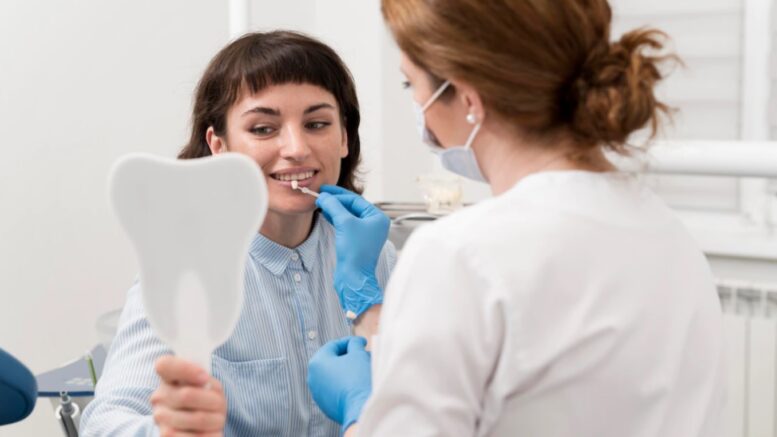Receiving routine dental care is essential for keeping your mouth and teeth healthy. Not only can a dental examination detect any existing oral health problems, but it also helps you prevent them from occurring in the future by offering advice on improving overall oral hygiene. Therefore, it is important to visit your dentist at least twice a year for a regular dental checkup.
The dentist will inspect for signs of tooth decay, gum disease and infection, as well as other conditions that could impact your dental and overall health. They may take X-rays of your teeth and jaw to detect any issues not visible to the naked eye.
They will also perform an exam to detect any potential signs of cancer, such as lumps or swelling in your mouth, tongue or throat and any unusual growths on your head or neck. They can also check your blood pressure to see if it’s abnormally low or high.
Your dentist will also review your diet to detect any changes that could be damaging your teeth and gums. If they observe that you’re eating too much sugar or not chewing thoroughly enough, then they can suggest ways to improve it and lower the likelihood of cavities or other tooth issues in the future.
Children, in particular, should pay special attention to proper oral health practices due to poor nutrition. A dentist can teach your little ones how to brush properly and develop good hygiene habits so that these diseases do not develop.
They can also suggest methods for removing plaque and tartar from teeth and gum line, which is an essential step in maintaining optimal oral health. With these tips in place, you’ll enjoy a bright and healthy smile for years to come!
Your dentist can also discuss teeth whitening options during your appointment. This will make your smile brighter and give you the assurance to show off that perfect smile!
Your dentist will also perform a careful assessment of your bite to detect any issues that could be impairing chewing ability, such as TMJ (temporomandibular joint) problems or misalignment.
Your dentist will check the depth of your gum pockets, which could be indicative of periodontal (gum) disease. This condition causes the gums to pull away from your teeth, leading to infections and inflammation.
Your dentist will inspect both your teeth and jaw for signs of impacted teeth or bone loss, which could prove costly if left untreated.
They will also take your blood pressure and offer advice on dietary choices that could have an adverse effect on your dental health.
At least once every six months, it’s recommended to schedule a checkup and have your teeth cleaned and examined by a dentist between visits. This helps maintain good oral health and minimizes the need for additional treatments at your next appointment.
